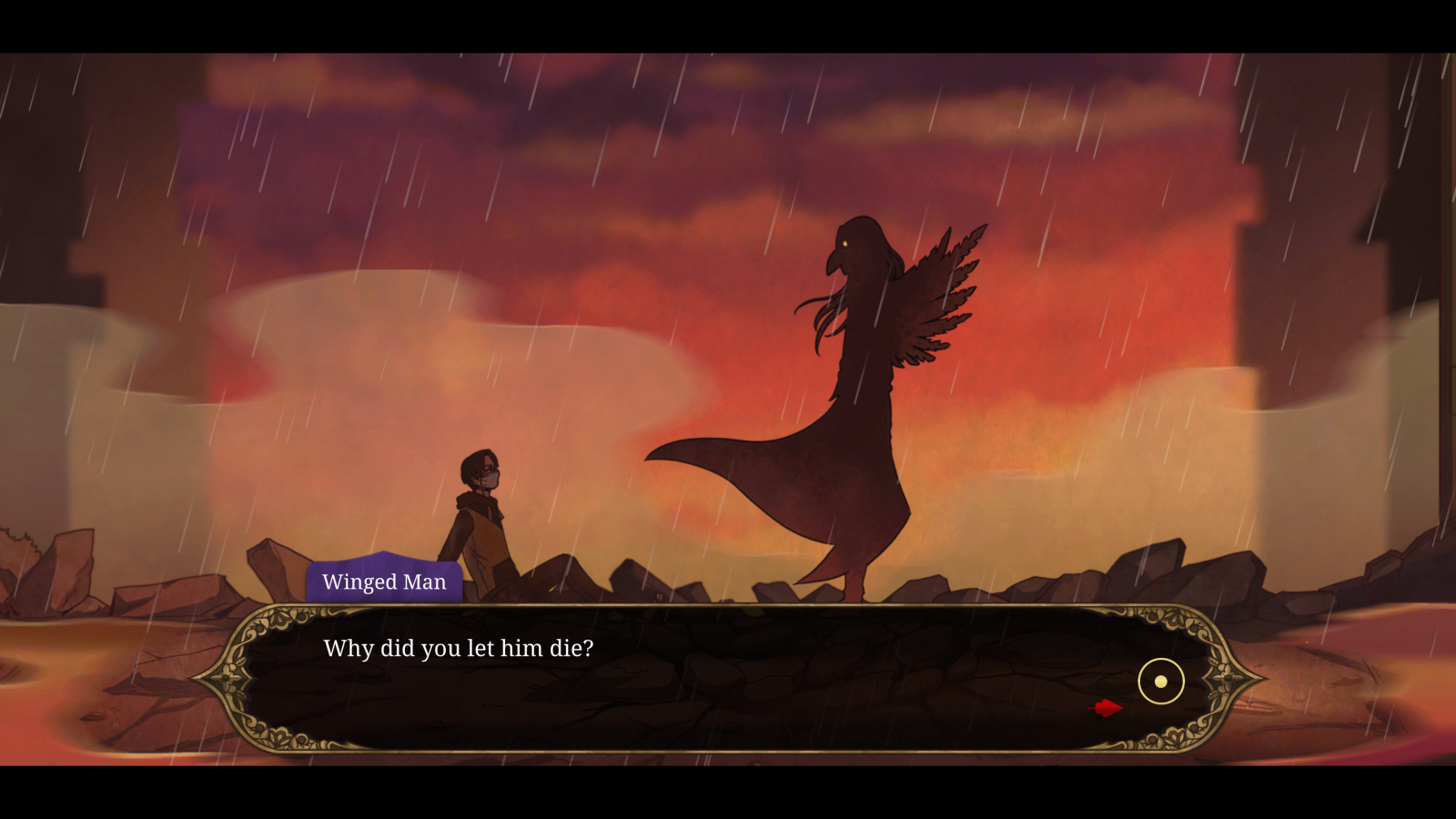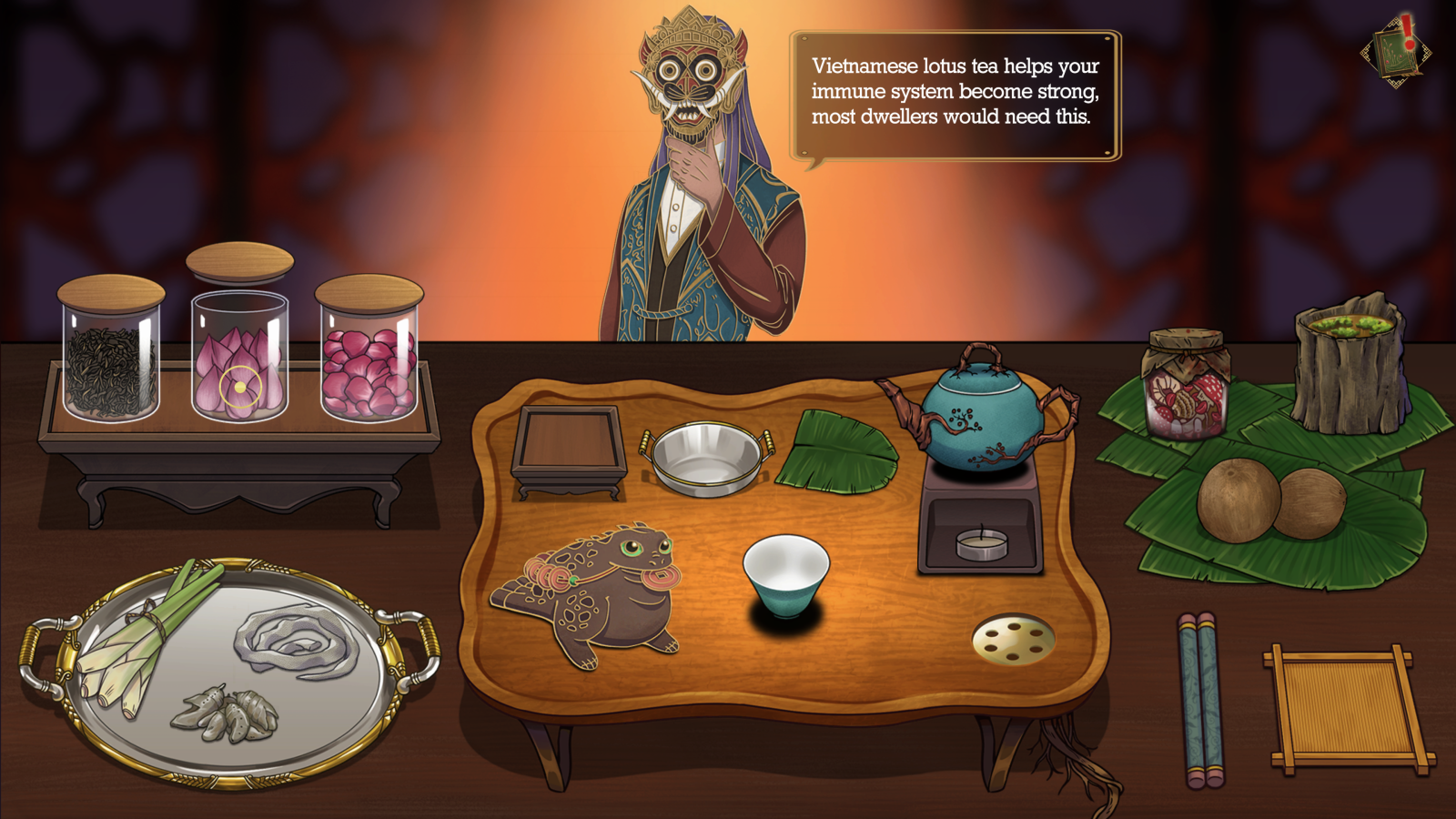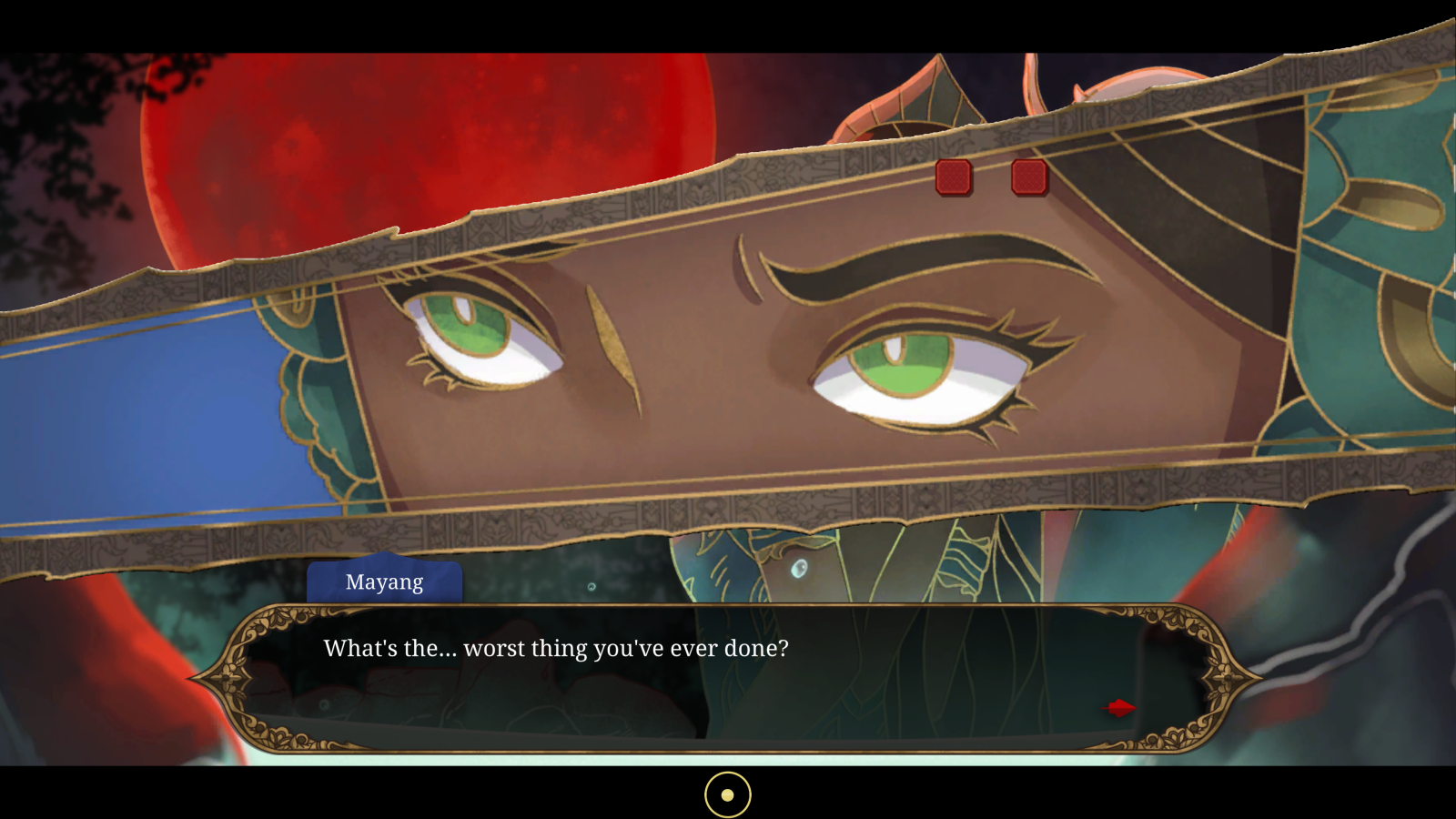Cursed by a winged beast for his selfish behavior, Jebat is transformed into a snake and plunged into Alam Bunian, the realm of monsters. Alone and confused, he is rescued by a figure known as the caretaker, who brings him to the Kabaret. It is here where monsters can find peace within a turbulent and violent territory. However, everyone must earn their place and Jebat is tasked with becoming the tea master, performing tea ceremonies to quell the monster’s more aggressive tendencies. This is needed more than ever, as Jebat arrives during the Kabaret’s election period, where the power hierarchy is poised to shift drastically. To learn the truth of his curse, he will need to form bonds with the beasts and entities that reside here, and confront his own past as well.
With the game being more of a visual novel, the gameplay takes form through speaking with various members of the Kabaret, choosing dialogue options and listening to their thoughts. Much of this dialogue is prompted through the main mechanic of the game, the tea ceremony. It’s here where you will be tasked with crafting a brew specific to a monster’s desires. They may wish to be reminded of a past memory, or wish for a drink to soothe their anger, which requires specific ingredients to make the proper beverage.
In concept, I like this idea, however in practice it’s more simple than it may seem. Oftentimes patrons will be quite overt with the drink they want, meaning that I would typically just refer to the recipe list and match up the words they said with the name of a tea mixture. This took away a lot of the nuance, and oversimplified the main mechanic of the game, which was a bit of a let down.
Beyond making tea, Kabaret also introduces three mini games, Guli, Congkak, and Stage Performance. The first is a marble game, where you score points by knocking glass orbs out of a circle while avoiding a breaker ball. Congkak is a Southeast Asian version of mancala, where you go around a board collecting small shells. The stage mini game appears between chapters, and tasks the player with keeping various stage objects in motion to keep the crowd at ease. These were amusing distractions the first time I engaged with them, but they got repetitive over time. Instead of being an optional diversion, they are forced into story progression, which means you’ll be playing these over and over again between narrative beats, which is a bit annoying. They are rather simple and easy to complete, but I would have rather had the option to skip them to get back to the story if I so desired.
One of my favorite aspects of Kabaret was getting to know the enchanting cast of monsters that dwell within the beautifully crafted mystical realm. You’ll hear out their secrets, their pasts, their biggest regrets or future ambitions. You’ll encounter monsters like Pontianak, a vampire whose life is waning as she reflects on the people she has killed, or the trickster Tikbalang, who longs to leave the Kabaret to return to his old ways of pranks and mischief. Each monster feels like someone who could have once walked the Earth, and carries their past life with them into the Kabaret. You’ll also be able to provide them with advice, which can change the outcome of the upcoming elections based on your responses and influence the upcoming shift of power in the realm.
My favorite character has to be Raden, a small clay tea pet that has a telepathic connection with Jebat. He’s a cranky old mentor that is often fed up with the selfish and inexperienced Jebat, but has a certain warmth to his words that shows he really does care. The dynamic between them was compelling, and I really enjoyed their growth together as Jebat adapts to his new life as a monster with Raden guiding him along the path of peace.
Jebat’s journey of understanding is an intriguing one, because he neither favors humanity or monsters over one another. Before he was cursed, he spurned his day job, and never felt he owed anyone anything. He feels crushed by society and his mother who wishes for him to be someone great, when inside he simply just doesn’t care. This carries over to when he is turned into a monster, and is now faced with the question of whether or not to reject his humanity.
While the game would seem like it is just about getting to know the dwellers of the Kabaret, it is also about unfurling the mind of Jebat as he learns compassion, anger, regret and a host of other human emotions. With multiple endings depending on how you influence the elections, Kabaret is an enticing exploration of the flow of life between monsters and men.
Corvo is a writer who loves to explore journalism through video games. Writing and editing reviews for triple-A games and indies alike, he finds his passion within expressing his experiences in a fair and accurate manner. Some of Corvo's favorite games are Destiny 2, Mass Effect, and Disco Elysium.

The simple gameplay of Kabaret is rescued by a beautiful artstyle buttressed against a fascinating narrative that is rooted richly in Southeast Asian folklore and mythology. Jebat’s struggle to understand his own feelings towards humanity is absorbing in the way that it explores self loathing and doom, while ultimately allowing the player to shape the future of the Kabaret.
PROS
- Colorful cast of monsters
- Charming art style and environments
- Intriguing narrative around humanity and folklore
CONS
- Repetitive mini-games
- Main mechanics are overly simplistic





 Buy Now
Buy Now
 Buy Now
Buy Now
 Buy Now
Buy Now
 Buy Now
Buy Now
 Buy Now
Buy Now
 Buy Now
Buy Now















